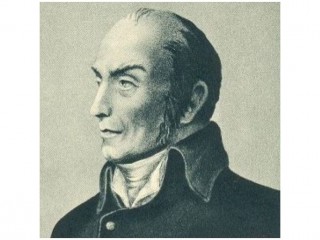
Nicolas Appert biography
Date of birth : 1749-11-17
Date of death : 1841-06-03
Birthplace : Chalons-sur-Marne, France
Nationality : French
Category : Science and Technology
Last modified : 2011-10-06
Credited as : Inventor, Canning,
1 votes so far
He was a confectioner and chef in Paris from 1784 to 1795. In 1795, he began experimenting with ways to preserve foodstuffs, succeeding with soups, vegetables, juices, dairy products, jellies, jams, and syrups. He placed the food in glass jars, sealed them with cork and sealing wax and placed them in boiling water.
In the late 18th century, as Napoleon Bonaparte led France to war against its neighbors, feeding the French army posed a serious logistical problem. The government offered a 12,000 franc prize to anyone who could devise a practical means for preserving perishable foodstuffs, and Nicolas Appert, the son of an innkeeper and owner of a small but successful confectionery shop in Paris, became obsessed with the challenge. He undertook several years of trial-and-error experiments, leading to his 1810 publication of the first safe methodology for appertization, now commonly called canning. The book, The Art of Preserving All Kinds of Animal and Vegetable Substances for Several Years, was promptly translated into English, German, Italian, Swedish, and other languages, and revolutionized the way food is stored in advanced societies.
Appert opened the world's first cannery, as an experimental facility in 1804 and, after collecting the ?12,000 prize, expanded it into a commercial factory in 1812. At the cannery, food was placed in loosely-sealed jars, which were immersed in water brought to boiling, after which the jars' contents were secured with an airtight seal. Appert had no formal education and no theoretical understanding of chemistry, bacteriology, or sterilization, and it was not until Louis Pasteur's seminal work that anyone explained why his process worked. In 1822, Appert adapted his methodology to use Peter Durand's new invention of metal containers called "cans". His Paris canning facility remained in business until 1933, nearly a century after Appert's death.


















